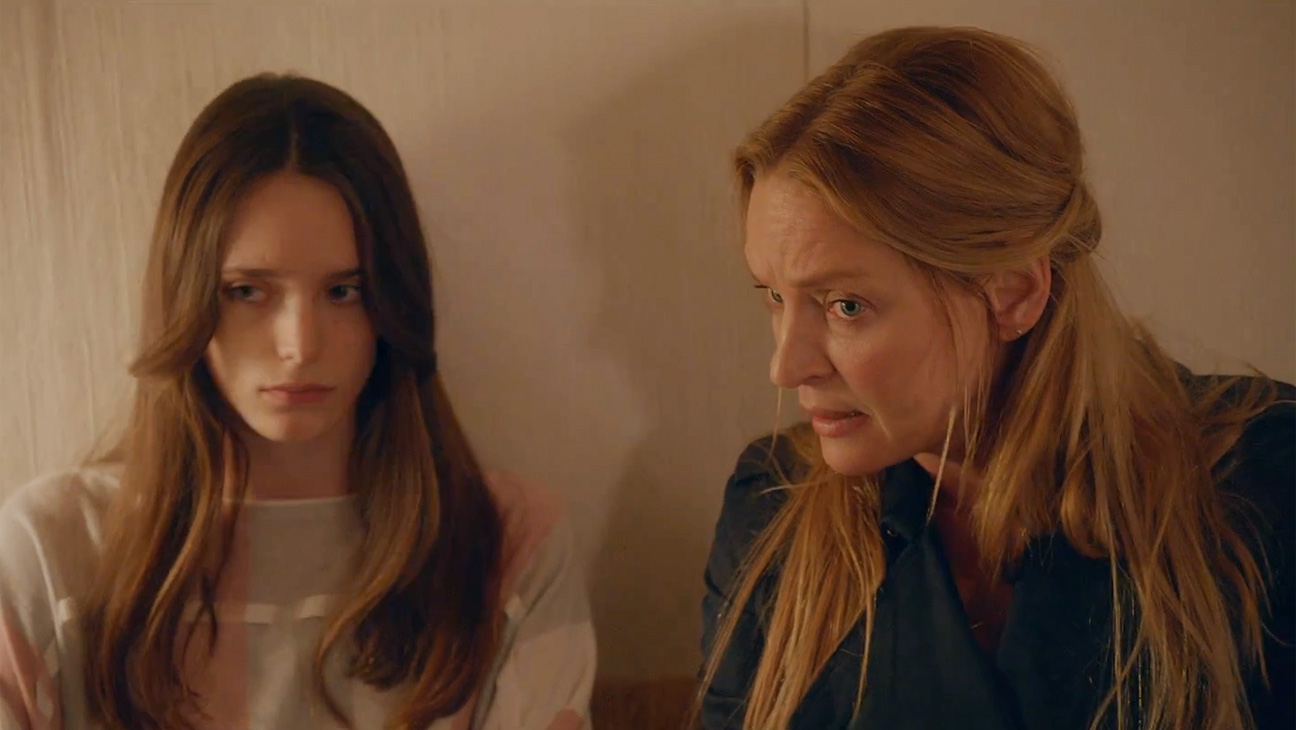Kill Bill but replace the violence with sex and the pulp sensibility with an arthouse one. And like Tarantino, best when not taken too seriously. My favourite scene in the four hour epic, which I watched on Netflix, is Uma Thurman's darkly comic turn as a deranged wife sticking the knife into her cheating husband. That scene is absolutely brutal, but also completely ridiculous. Thurman brings the kids around to the flat where her husband's infidelities took place and gives them a tour. Her husband is a fool – leaving his wife for the titular nymphomaniac who doesn't care a jot about him. He stands as a silent witness to his life falling apart, and he only has himself to blame. The nymphomaniac, Joe, just wafts through these people's lives leaving carnage in her wake. It's an expertly judged performance from Thurman – just the right side of histrionic to communicate the pain of the scenario while at the same time registering how silly it is. It's a unique moment, and well worth putting up with the rest of the film just to experience it.
Volume I by general consensus is better than Volume II, precisely because it's more playful, and tries on several different modes. Although the second part is darker, and has an excruciating sequence where Joe puts the life of her son at risk because of her addiction, the first part surpasses it in its portrayal of the death of Joe's father. Volume II has fewer tricks up its sleeve – the only bit of levity is when Joe attempts to arrange a threesome where the two men end up having an argument about which positions to take, and she has to leave unfulfilled. You could argue that the very end of the film marks a return of Trier's very wry, dark sense of humour – Joe is first beaten and humiliated by her ex-husband and protégé, and then betrayed by her confessor throughout the film – Stellan Skarsgård's monkish Seligman.
The problem with these final cruel pivots is that unlike the Uma Thurman scene, we are left to guess at the motives of the characters. The surrogate daughter was seduced, but we don't see the seduction or the arguments used to turn her against Joe. Seligman says he is asexual, but when Joe commits herself to conquering her nymphomania, some of her desire seems to transfer onto him. The story of her life fires up a sexual curiosity in him just as Joe renounces her own sexuality. It's a twist of fate – something out of a fairy-tale. And in fact all the episodes in the film have the same quality of characters pulled deterministically by forces beyond their control, conspiring to create neat stories that don't ring true when you step back from them. The film draws attention to this, with Seligman occasionally doubting the veracity of Joe's story. It's brazenly artificial – something else the film shares with Kill Bill.
Which makes you wonder what the point of it all is. Suliman's verdict focuses on the double standard whereby women who behave like Joe face far more censure than men who behave in the same way. That's fair enough, although he offers this as an excuse for behaviour that is still pretty reprehensible. Rebellion against the repressive nature of society and religion is a cornerstone of erotic art, and feels unsatisfying as a conclusion to a film about sex made in the 2010s. I think Trier's ultimate motive is to conjure up a stubborn iconoclast who keeps getting punished, physically as well as emotionally, for being out-of-step with society, an urge he's had at least since Breaking the Waves. It's a celebration of being an outcast and martyr, and not a little self-aggrandising as a result.


No comments:
Post a Comment